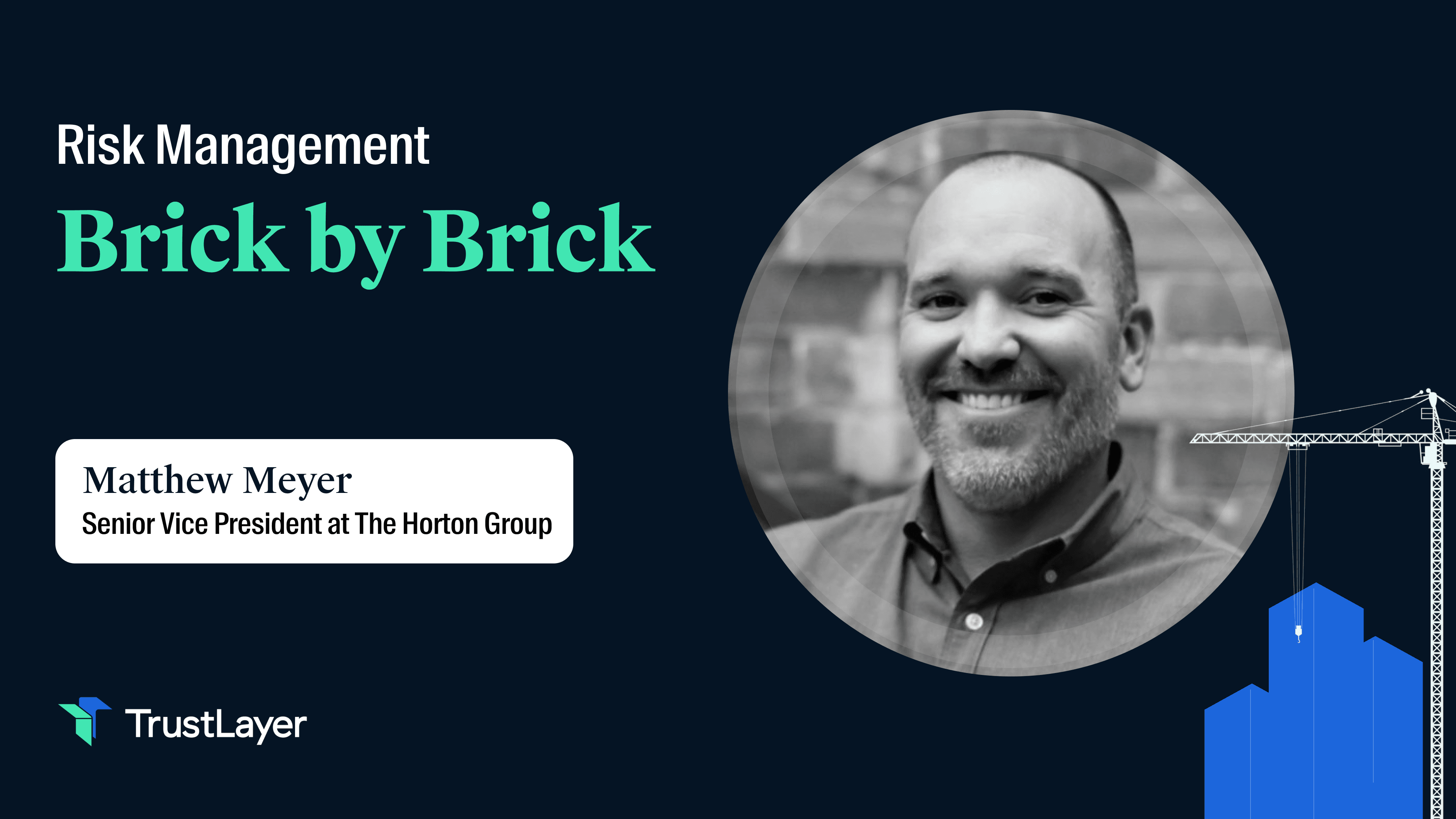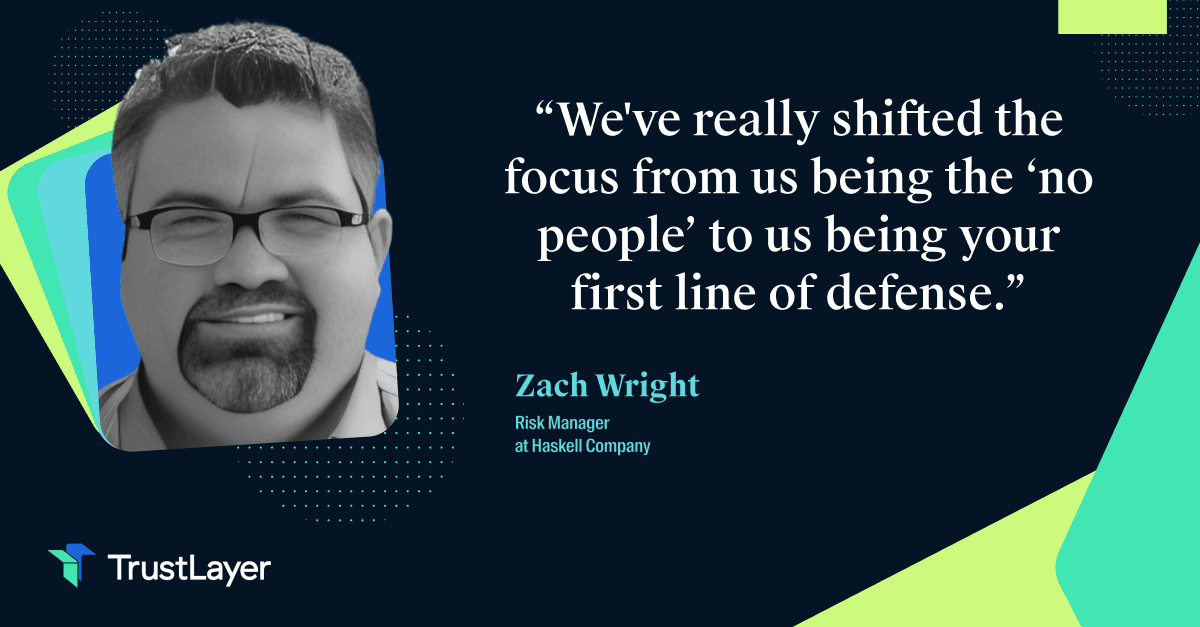In this episode of Risk Management: Brick by Brick, Jason Reichl is joined by Matt Meyer, the Senior Vice President at The Horton Group, to discuss the importance of having a risk management program and the various elements that make it successful. As someone who has specialized in construction risk management at Horton for nearly ten years, Matt has ample experience and knowledge to share on the topic.
Is the Construction Industry Vanilla?
When asked why his role exists, Matt starts by explaining the construction industry's evolution. "Frankly, our industry has been so vanilla and so generic for so many years that I think you're seeing this shift into specializations. My job and I exist simply to serve those industries that we kind of align ourselves with. And our job is to help manage the kind of really complex issues they face that, frankly, they don't have the time or energy or resources to handle."
Most companies realize the benefits of specialization, and most contractors are now dividing their services into different industry-specific practices. Specialists can provide more focused and tailored services to their clients. This approach has proved successful for many brokers, allowing them to build strong relationships with their clients and better understand their needs.
The Evolution of the Construction Industry
As Jason moves onto discussing some of the key considerations contractors should take into account when engaging with subcontractors, Matt reflects on the construction industry's evolution, "I would tell you this really being clear on the front end of expectations. If I'm a contractor looking to engage downstream subcontractors, really being clear in my expectations of what is required of them is step one."
One of the most important aspects of a risk management program is how a company manages its subcontractors. As Matt says, "I almost feel like we're in a day and age where it's the reverse, right? Like the GCs need the subs almost more than they need the GCs."

Another important consideration for contractors is continuity and familiarity with their subcontractors. Building a project can be difficult enough, but having to rebuild those relationships and learn new processes every time a new project starts can be even more challenging.
"It all matters, in my experience, if people pay attention to this type of process and are very mindful about what it looks like, what the interactions are, and how people are going to perceive these types of emails or requests, I think it's certainly reflective of how they operate the rest of the business."
Risk Management Horror Stories
The discussion then turns to one of the more spooky aspects of risk management with Matt sharing a horror story about a costly claim. "Kohls was hiring a contractor to plow and maintain snow and ice right during the winter in the Midwest. And effectively, what they did is turned around and hire a subcontractor downstream from them. The contractual risk transfer was supposed to flow all the way through and basically insulate coals from those slip and fall claims should they actually occur."
As it turns out, the insurance didn't extend itself to the subcontractors, so when a slip and fall claim occurred, Kohls was ultimately on the hook for it. "That's the stuff we catch, and when we're successful in mitigating a loss in the future by raising our hand and saying, ‘This isn't going to work.’ It pays the dividends."
As the conversation comes to a close, Matt parts by sharing sage advice for professionals interested in furthering their careers. He suggests learning as much as possible about specific areas that you’re passionate about,"Find those little niches, go after them, and there's some significant opportunity to grow professionally over time. Keep in mind, that's not going to happen overnight."








